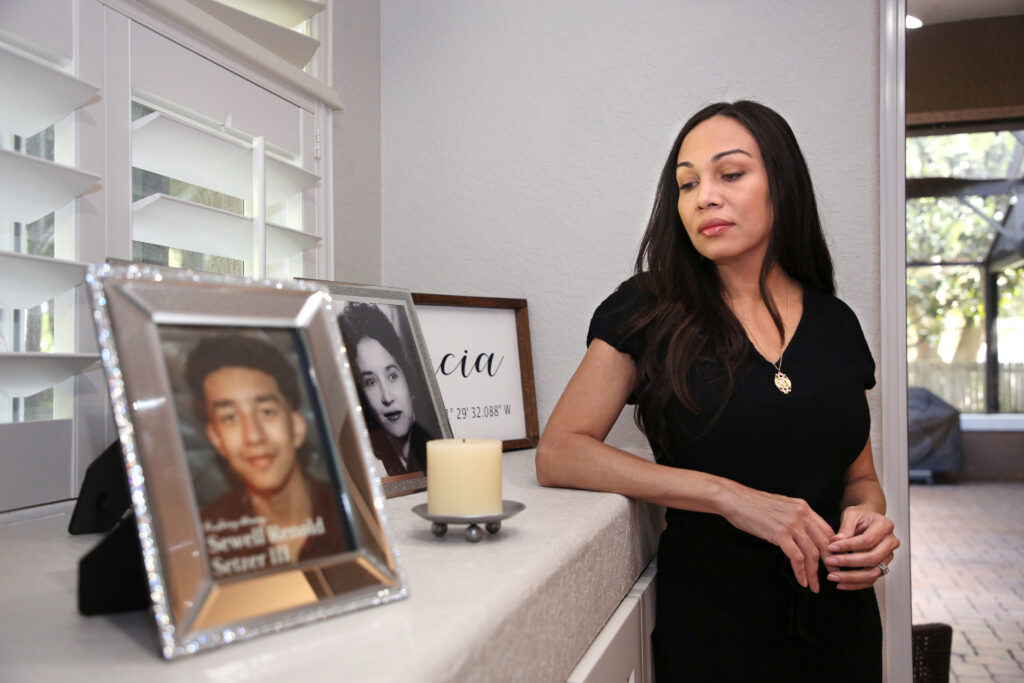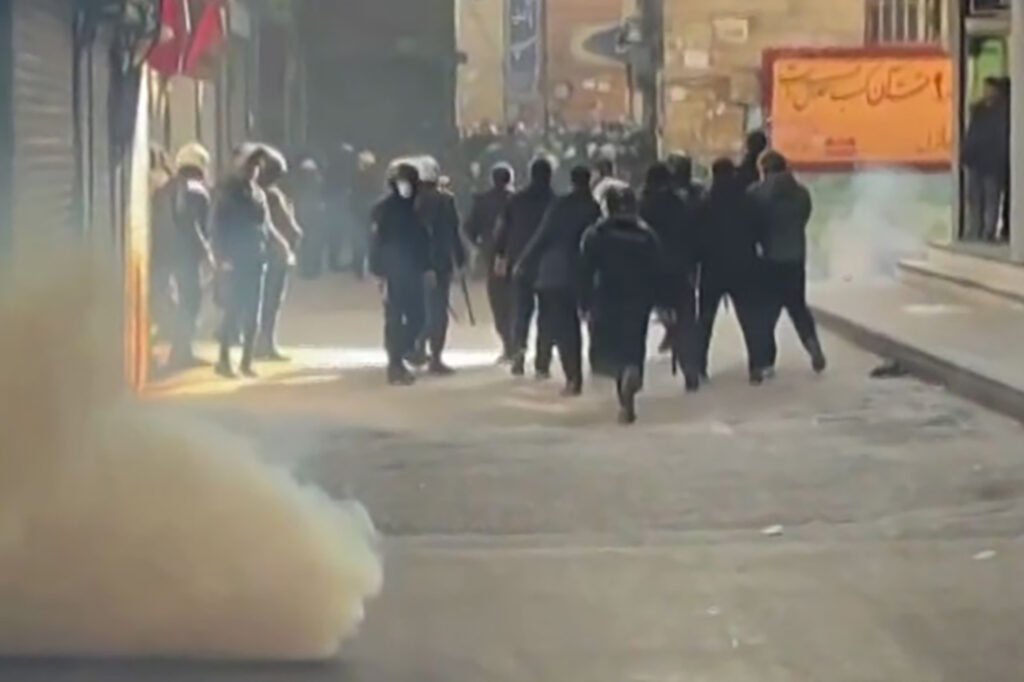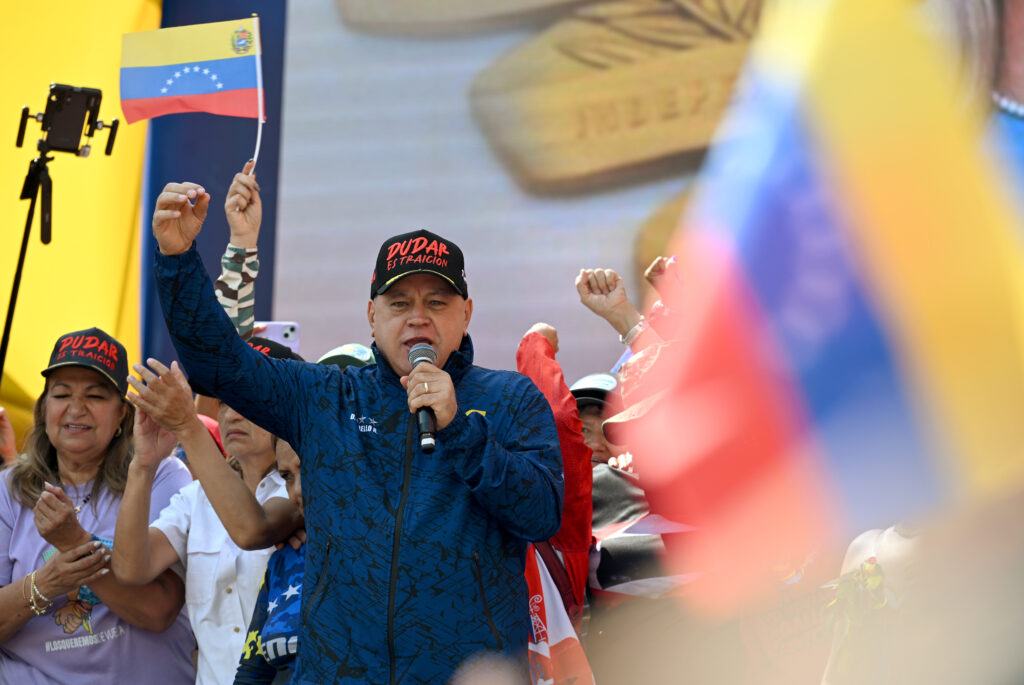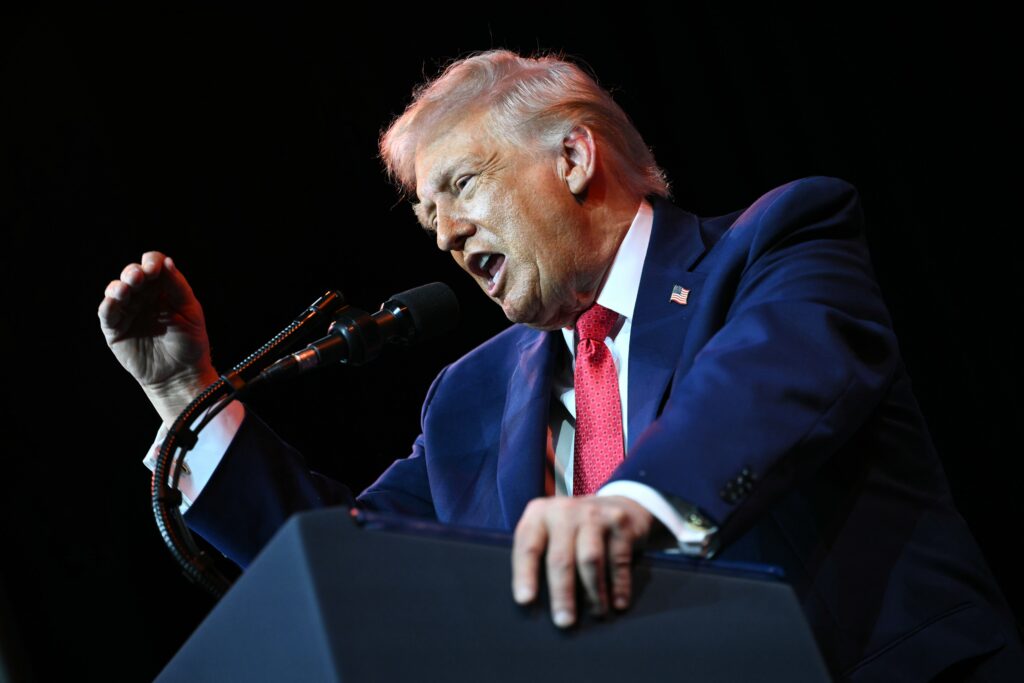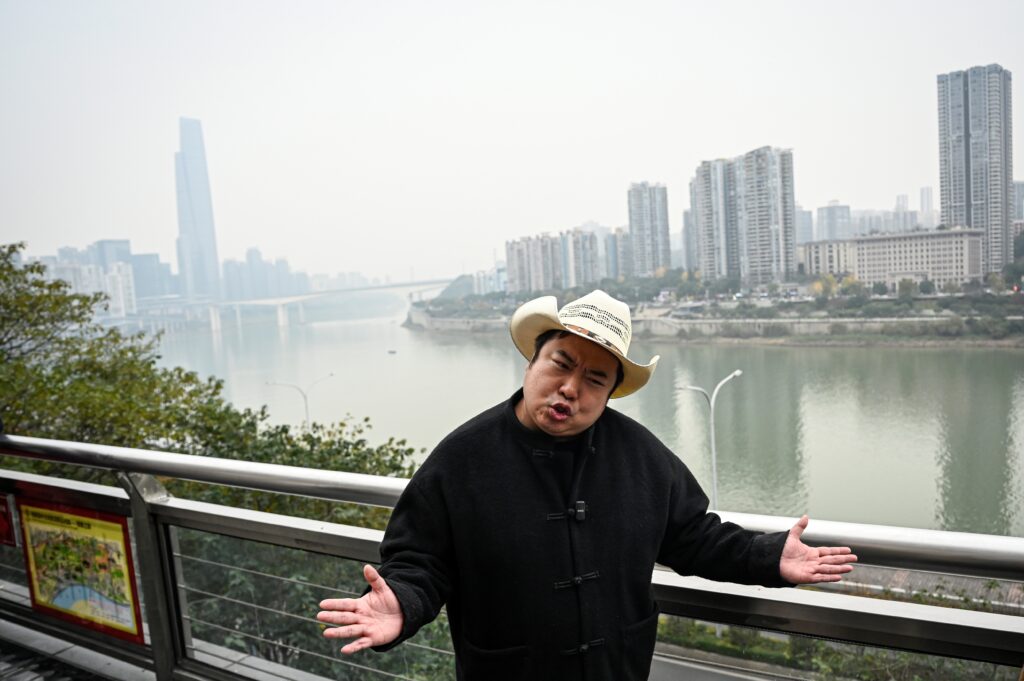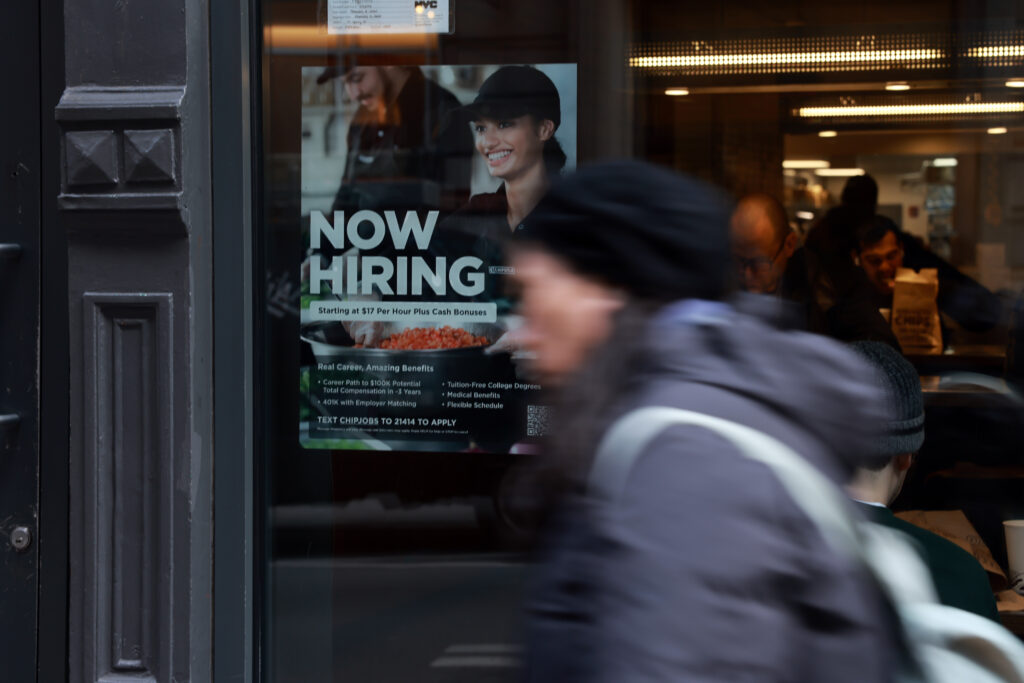USA: Google et Character.AI mettent fin à des poursuites liées à des suicides
Google et la startup Character.AI ont conclu des accords hors tribunaux pour mettre fin à des poursuites lancées par des familles accusant des robots conversationnels de nuire aux mineurs, y compris d’avoir contribué au suicide d’un adolescent, selon des documents juridiques rendus publics mercredi.Parmi ces plaintes figure celle de Megan Garcia dont le fils de …
USA: Google et Character.AI mettent fin à des poursuites liées à des suicides Read More »
Lidl, un des principaux annonceurs, va arrêter la publicité à la télévision traditionnelle en France
Lidl, l’un des premiers annonceurs, va arrêter la publicité à la télévision traditionnelle en France, a annoncé le discounter allemand jeudi, invoquant une réglementation trop contraignante, six mois après une lourde condamnation pour “pratiques commerciales trompeuses”.”Nous n’investirons plus dans la TV linéaire (télévision classique par rapport notamment aux plateformes en ligne, NDLR) tant que les …
New clashes in Iran as opposition urges more protests
Security forces used tear gas to disperse protesters in Iran as people angered by the economic situation in the Islamic republic kept up their challenge to the authorities and the exiled opposition Thursday urged them to step up their actions.The 12 days of protests have shaken the clerical authorities under Ayatollah Ali Khamenei already battling economic crisis after years of sanctions and recovering after the June war against Israel.The movement, which originated with a shutdown on the Tehran bazaar on December 28 after the rial plunged to record lows, has spread nationwide and is now being marked by larger scale demonstrations.Authorities have blamed unrest on “rioters” and the judiciary chief has vowed there would be “no leniency” in bringing them to justice. On Wednesday, an Iranian police officer was stabbed to death near Tehran “during efforts to control unrest”, the Iranian Fars news agency said.Reza Pahlavi, the son of the shah ousted by the 1979 Islamic revolution and a key exiled opposition figure, said that the turnout during Wednesday’s protests had been “unprecedented” and called for major new protests Thursday evening.He said in a message on social media he had received reports the “regime is deeply frightened and is attempting, once again, to cut off the internet” to thwart the protests.The HRANA monitor published a video of protesters in Kuhchenar in the southern Fars province cheering overnight as they pulled down a statue of the former foreign operations commander of the Revolutionary Guards Qassem Soleimani who was killed in a US strike in January 2020 and is hailed as a national hero by the Islamic republic.HRANA said according to its count protests had taken place in 348 locations over the last 11 days in all of Iran’s 31 provinces.It also published a video of people massing late at night in the Tehran satellite city of Karaj and lighting fires in the streets and also images of security forces using tear gas to disperse a protest in the Caspian Sea town of Tonekabon.The Norway-based Iran Human Rights group said security forces on Wednesday “opened fire on protesters, used tear gas and violently assaulted civilians” during a protest in the key southeastern hub of Kerman.The protests are being characterised by larger-scale demonstrations, with hundreds marching through a main avenue in the northeastern city of Bojnord on Wednesday in a video verified by AFP.Demonstrators are repeating slogans against the clerical leadership including “this is the final battle, Pahlavi will return” and “Seyyed Ali will be toppled”, in reference to Khamenei.IHR said on Tuesday at least 27 protesters including five teenagers under the age of 18, have been confirmed to have been killed in a crackdown on the protests, warning the death toll will climb as more killings are verified.
Diosdado Cabello: Venezuela’s feared enforcer at heart of new government
Few names in Venezuela conjure as much fear and reverence as Diosdado Cabello — the man that Washington is offering $25 million to capture.Loathed by opponents and cheered by pro-government “Chavistas,” fast-talking with a wicked sense of humor, the former army captain has loomed over public life in the Caribbean nation for more than 20 years.Now that US forces have removed his old boss Nicolas Maduro as president and put him on trial, Venezuelans are watching Cabello, the man widely considered Venezuela’s second-most powerful figure.After Maduro was deposed, he voiced defiance on behalf of the leftist government in the face of US pressure.”The unity of the revolutionary force is more than guaranteed,” he said.- Street militia boss -Several times a minister and secretary-general of the ruling United Socialist Party, Cabello is perhaps best known for setting up the feared “colectivos,” a rifle-wielding, motorbike-riding militia that intimidates opponents.”The government has not much control over them,” said Brian Naranjo, a former US diplomat who met Cabello in the late 1990s.He branded the colectivos “ideologically committed thugs and goons that can be deployed on the street to maintain order” — though their supporters say they prevent crime.Cabello’s face is well known from his television show, “Hitting With A Mallet.”Cabello fills the show with edgy jokes about opposition figures, such as its one-time figurehead Juan Guaido — “that rat” — and current opposition leader Maria Corina Machado, whom he compared with a mythical Venezuelan bogeywoman, La Sayona.”When the bogeywoman sees her, the bogeywoman starts crying,” he cracked.- Coup comrade -Cabello was born on April 15, 1963, in El Furrial, then a mostly rural community in eastern Monagas state. He is married with three children.After graduating from Venezuela’s military academy, he joined the army, where he met Hugo Chavez, the future leader of the socialist “Bolivarian revolution.”He joined Chavez in a 1992 coup attempt to overthrow President Carlos Andres Perez.He was imprisoned for that until being pardoned in 1994, along with Chavez and other officers involved in the uprising.Once free, Cabello helped Chavez in the campaign that led to his presidential victory in 1998 and entered his administration the following year.His critics accuse him of having amassed a vast fortune through corruption and front companies.- Chavez appointee -Cabello served briefly as acting president following a 2002 coup that briefly deposed Chavez, Maduro’s predecessor.”Commander Chavez appointed me interior and justice minister amidst all the mayhem,” Cabello said in 2024.”At that time, with the people beside us, we prevailed.”Cabello was reappointed interior minister in August 2024, giving him control of the security apparatus and intelligence services.”He was brought back in by Maduro, after internal exile from the inner circle,” said Naranjo.Under Cabello, more than 2,000 people were detained during protests at Maduro’s declaration of victory in that year’s election, which was branded a fix by the United States and several of its allies.- Tensions in new government -With Maduro, “Cabello has been in and out of favour” over the years, said Naranjo.In a murky political world, Cabello is rumored to be at odds with Maduro’s successor Delcy Rodriguez and her powerful brother Jorge, leader of parliament.Observers warn that tensions between the Rodriguez pair, Cabello and Defense Minister Vladimir Padrino Lopez threaten the stability of the current interim leadership.”Diosdado Cabello has a lot of informal control, Vladimir Padrino has the formal control,” said David Smilde, a US academic specializing in Venezuela at Tulane University.”At any time they could turn on her… on the other hand, she is in a position that she could remove one of them.”- Internal exile -Chavez passed over Cabello in naming Maduro as his successor for president.”Before Chavez died, there was a battle between Nicolas Maduro and Diosdado Cabello,” but the two eventually forged a unified front for stability, said Smilde.Cabello clung onto his position of influence through the recent years of economic sanctions and international pressure, not least from US President Donald Trump.The United States has posted a $25-million reward for his capture — accusing him of drug trafficking and terrorism alongside Maduro.
Trump étudie “activement” un achat du Groenland, affirme la Maison Blanche
Donald Trump étudie “activement” un achat du Groenland, a déclaré mercredi la porte-parole de la Maison Blanche, tout en refusant une nouvelle fois d’exclure l’option militaire pour acquérir ce territoire semi-autonome du Danemark, qui a toujours dit ne pas être à vendre.Les intentions américaines suscitent l’inquiétude des alliés européens, qui se préparent à “riposter” à toute forme d’intimidation, selon le ministre français des Affaires étrangères mercredi.”Le président et son équipe de sécurité nationale (en) discutent activement”, a déclaré Karoline Leavitt lors d’une conférence de presse, en réponse à une question sur une possible acquisition, affirmant que cette idée n’était pas “nouvelle” pour les Etats-Unis.A la question de savoir ce que Washington aurait à gagner d’une telle acquisition alors que les traités existants permettent déjà aux Etats-Unis d’avoir une présence militaire au Groenland, Karoline Leavitt a affirmé que “davantage de contrôle sur la région de l’Arctique” était recherché, de même que “s’assurer que la Chine et la Russie, et nos adversaires ne puissent pas continuer leur agression dans cette région très importante et stratégique”.Le chef de la diplomatie américaine, Marco Rubio, avait annoncé plus tôt dans la matinée qu’il rencontrerait la semaine prochaine des responsables du Danemark pour évoquer la question du territoire semi-autonome, mais sans préciser le lieu ni le format.- Normalisation -La cheffe de la diplomatie du Groenland a indiqué que son gouvernement participerait à cette rencontre.”Rien sur le Groenland sans le Groenland. Bien sûr que nous allons y participer. C’est nous qui avons demandé une réunion”, a dit à la télévision publique danoise DR Vivian Motzfeldt.Plusieurs fois, le Groenland, soutenu par sa puissance de tutelle, a dit ne pas être à vendre et vouloir décider seul de son avenir.Pour Vivian Motzfeldt, les discussions de la semaine prochaine doivent être l’occasion de normaliser les relations avec Washington.”Le Groenland a besoin des Etats-Unis et les Etats-Unis ont besoin du Groenland en matière de sécurité dans l’Arctique”, a-t-elle dit au quotidien groenlandais Sermitsiaq.Alors que Karoline Leavitt avait affirmé la veille que Donald Trump envisageait d'”utiliser l’armée” pour mener à bien une acquisition du Groenland, la porte-parole a réitéré mercredi ses propos, qui ont provoqué l’indignation en Europe.”Toutes les options sont toujours sur la table pour le président Trump”, a-t-elle répondu à un journaliste qui demandait pourquoi la Maison Blanche n’écartait pas une option militaire.”Mais je dirais simplement, le premier choix du président a toujours été la diplomatie”, a-t-elle précisé.Marco Rubio avait également affirmé devant la presse au Capitole: “Si le président identifie une menace envers la sécurité nationale des Etats-Unis, chaque président conserve l’option d’y faire face à travers des moyens militaires”.- “Malentendus” -Face aux déclarations de la Maison Blanche, les Européens ont exhorté au dialogue.Nuuk et Copenhague contestent notamment l’argument de Donald Trump, qui répète avoir besoin de ce territoire situé entre l’Atlantique Nord et l’océan Arctique pour assurer sa sécurité face à la Chine et à la Russie.”Nous ne partageons pas cette idée selon laquelle le Groenland serait couvert d’investissements chinois”, a dit le ministre danois des Affaires étrangères, Lars Løkke Rasmussen.Le Danemark a fortement investi dans la sécurité arctique ces 12 derniers mois, allouant pour cela quelque 90 milliards de couronnes (1,2 milliard d’euros).La Première ministre danoise, Mette Frederiksen, a averti que le Danemark –Groenland compris — étant membre de l’Otan, une attaque américaine contre l’un des membres de l’Alliance signifierait “la fin de tout”, notamment de l’ordre de sécurité international établi à la fin de la Seconde Guerre mondiale.La France, l’Allemagne, l’Italie, la Pologne, l’Espagne et le Royaume-Uni ont également apporté leur soutien à Copenhague.Le vice-chancelier autrichien, Andreas Babler, a exhorté mercredi l’Union européenne à élaborer un “catalogue” de mesures pour dissuader toute tentative américaine d’annexer le Groenland, dont la menace de sanctions “sévères” contre des géants technologiques américains et des droits de douane “punitifs” sur certains produits agricoles.
“Amazing!”: le “Trump chinois” fait rire des deux côtés du Pacifique
Mains ouvertes en V comme Donald Trump, il imite la voix et la gestuelle du président américain à la quasi-perfection: le Chinois Ryan Chen, 42 ans, devient un phénomène sur les réseaux sociaux avec ses vidéos humoristiques.Rien ne prédestinait l’ex-directeur commercial à cette carrière, qui a véritablement décollé en 2025 avec le retour de M. Trump à la Maison Blanche. “Trump, c’est une ressource inépuisable, car c’est la personnalité qui génère le plus de trafic internet au monde”, explique à l’AFP cet habitant de Chongqing (sud-ouest), elle-même devenue populaire en ligne grâce à ses gratte-ciel spectaculaires et ses rues labyrinthiques.Ryan Chen ne fait pas de satire politique, un terrain miné en Chine et qui peut valoir une suspension de compte. Dans ses vidéos, en anglais sous-titré en mandarin, il présente avec humour la nourriture, les habitudes et les villes chinoises, les différences culturelles, blague avec des étrangers ou danse sur “YMCA”, chanson fétiche de Donald Trump. Le tout émaillé de “tremendous!” (“phénoménal”) et d'”amazing!” (“incroyable”) – superlatifs qu’affectionne le président américain. “La politique ne m’intéresse pas. Mais je trouve que c’est un excellent +showman+”, affirme Ryan Chen à propos de Donald Trump, qu’il suivait déjà lorsqu’il animait l’émission de téléréalité “The Apprentice”. “Si je l’imite, ce n’est pas pour me moquer de lui, mais pour gagner en visibilité. Elle me sert à faire avancer ma carrière et faire connaître la Chine et ma ville”, précise-t-il, coiffé d’un chapeau blanc de cow-boy.- “Voisin de palier” -Désormais reconnu dans la rue, il compte plus d’un million d’abonnés sur Instagram, presque autant sur TikTok, et plus de 2,5 millions sur les plateformes chinoises. “Le point fondamental, c’est de maîtriser l’anglais”, avec le niveau d’un “locuteur natif”, puis de travailler sa voix, explique cet autodidacte qui a appris la langue en regardant des séries américaines comme “Friends” ou “The Big Bang Theory”.Autre impératif: “rester branché sur l’actu” Trump car le milliardaire est “une source intarissable de trucs marrants”, raconte Ryan Chen, qui dit aussi s’inspirer des imitateurs américains. Employé dans l’architecture, secteur frappé par la crise immobilière, il a d’abord voulu se ménager “une porte de sortie” en créant des vidéos en ligne pour enseigner l’anglais. Sans vraiment percer. Jusqu’au jour où un ami le met au défi d’imiter Donald Trump dans ses vidéos: elles deviennent virales. Son apparition en avril dans un direct d’IShowSpeed, vidéaste et influenceur américain aux 47 millions d’abonnés sur YouTube alors en visite en Chine, dope encore sa visibilité. Donald Trump a pris une telle place dans sa vie que Ryan Chen dit éprouver une certaine familiarité, comme à l’égard d’un “voisin de palier”.Il se voit comme un “pont” entre des internautes étrangers désireux de découvrir la Chine urbaine, “son ambiance vivante et chaleureuse”, et des Chinois avides de comprendre les cultures et les codes humoristiques d’autres pays.- Au cinéma? -De son vrai nom Chen Rui, l’imitateur affirme pouvoir vivre de son activité. “Ma principale source de revenus, c’est la publicité”, explique-t-il, avec des “marques pour lesquelles je fais de la promotion de produits, comme des voitures, des produits électroniques, des jeux, du lait”.Il fait également de l’animation lors d’événements ou de soirées d’entreprises.Mais il a un autre rêve: “jouer au cinéma”.”Un réalisateur pourrait me proposer un petit rôle. Par exemple, quelqu’un de l’univers Marvel, pour une apparition”, sourit-il. Signe que son imitation n’a, semble-t-il, pas indisposé l’administration Trump, Ryan Chen a obtenu un visa pour les Etats-Unis, où il est actuellement en voyage.Aucun entretien avec le président américain n’est prévu à ce stade. Mais Donald Trump pourrait venir en Chine en avril pour une visite d’Etat. “Le rencontrer serait sans doute très cool”, mais Ryan Chen dit n’avoir “pas de désir particulier” de le faire car cela deviendrait vite une affaire diplomatique. “Je suis juste un humoriste. Je n’ai pas d’aspiration politique”, souligne-il. Il espère toutefois voir Chine et Etats-Unis “coexister en bonne intelligence” et appelle Donald Trump à venir “goûter la fondue” de Chongqing, extrêmement épicée. L’invitation est lancée.
Equity markets mostly down as traders eye US jobs data
Equity markets mostly fell Thursday as the rally that has characterised the start of the year paused with investors looking ahead to the release of key US jobs data this week.Traders were also taking stock as they assessed the geopolitical outlook after the US toppling of Venezuela’s president and simmering tensions between China and Japan.A tepid lead from Wall Street, where the Dow and S&P 500 came off record highs, saw Asia players step back and take a breather before the US release of data on job openings and unemployment claims later in the day.They are followed Friday by the closely watched reading on non-farm payrolls, a crucial guide for Fed decision-makers, who meet at the end of the month amid debate on whether they will cut interest rates for a fourth successive time.”Attention is fixed squarely ahead, with Friday’s jobs report sitting dead centre in the crosshairs,” said Stephen Innes, managing partner at SPI Asset Management.”A very strong number forces markets to rethink timing. A very weak one reopens recession debates. Anything in between simply prolongs the range and keeps this market drifting sideways at altitude.”Equity markets in Asia struggled, with Tokyo, Hong Kong, Singapore, Shanghai, Taipei, Mumbai, Bangkok and Jakarta were all down.Sydney and Manila rose, while Wellington was flat.London opened on the back foot at the open with Paris, while Frankfurt was flat.Seoul edged marginally higher to another record, though tech giant Samsung sank even after saying it expected its fourth-quarter profit to reach a record $13.8 billion.Tokyo stocks were weighed after China announced an anti-dumping probe into imports from Japan of a key chemical used in making semiconductors, a day after it banned the export to the country of goods with potential military uses.The move adds to rising diplomatic tensions between the Asian giants since Japanese Prime Minister Sanae Takaichi suggested in November that her country may react militarily in any attack on Taiwan.Oil prices edged up after suffering a second successive steep fall Wednesday on the back of news that Venezuela would send the United States millions of barrels of crude following the latter’s ouster of President Nicolas Maduro at the weekend.Traders will also be keeping an eye on a Supreme Court ruling due Friday on the legality of Donald Trump’s punishing tariffs.The landmark case on the US president’s unprecedented use of powers for sweeping global levies strikes at the heart of his economic agenda.- Key figures at around 0815 GMT – Tokyo – Nikkei 225: DOWN 1.6 percent at 51,117.26 (close)Hong Kong – Hang Seng Index: DOWN 1.2 percent at 26,149.31 (close)Shanghai – Composite: DOWN 0.1 percent at 4,082.98 (close)London – FTSE 100: DOWN 0.2 percent at 10,023.82 Euro/dollar: DOWN at $1.1675 from $1.1682 on WednesdayPound/dollar: DOWN at $1.3441 from $1.3462Dollar/yen: DOWN at 156.52 yen from 156.60 yenEuro/pound: UP at 86.85 from 86.80 penceWest Texas Intermediate: UP 0.2 percent at $56.10 per barrelBrent North Sea Crude: UP 0.2 percent at $60.09 per barrelNew York – Dow: DOWN 0.94 percent at $48,996.08 (close)
Alcool: un coût massif pour la société et un carburant des violences faites aux femmes
Si le Dry January incite les Français à moins boire pour leur santé, le coût massif de l’alcool pour la société et son rôle dans les violences commises par les hommes doivent faire l’objet de politiques publiques plus volontaristes, disent des experts.”L’alcool coûte beaucoup plus en termes de santé qu’il ne rapporte en revenus”, déclare à l’AFP le Dr Emmanuel Ricard, président de la Ligue contre le cancer. “Première cause de consultation aux urgences avec 246.000 hospitalisations par an, première cause de violences, d’altercations, de bagarres, de violences conjugales et sexuelles, d’accidents de la route”, énumère ce médecin de santé publique.Si la consommation quotidienne diminue en France, le coût global de l’alcool pour la société demeure majeur: il est de 102 milliards d’euros par an, selon l’Observatoire français des drogues et des tendances addictives.Cela englobe le coût direct pour les finances publiques (soins, répression, prévention…) et le coût “externe” (perte de vies humaines, de qualité de vie pour les malades, de productivité pour les entreprises…) dont on déduit les recettes des taxes sur l’alcool et l’économie sur les retraites non versées aux personnes mortes prématurément.”L’alcool coûte extrêmement cher à la société, il faut en avoir conscience”, abonde l’historienne Lucile Peytavin, qui a passé les statistiques au crible pour son livre “Le coût de la virilité” (Michel Lafon).Fin décembre, l’OMS a imputé à l’alcool, qui “altère le jugement et la maîtrise de soi, ralentit les temps de réaction, réduit la coordination et favorise les comportements à risque”, 800.000 morts par an en Europe, soit “un décès sur trois dus à des traumatismes et des actes de violence”. C’est un “facteur de risque majeur” de violences intra-familiales que subissent femmes et enfants, a-t-elle souligné.Plaidant pour des politiques publiques plus volontaristes, la chercheuse Leane Ramsoomar l’affirmait elle aussi le mois dernier dans The Conversation, au vu d’une étude mondiale publiée par l’institut RTI International: “la consommation d’alcool chez les hommes nuit aux femmes et aux enfants”.- “Chialer comme une gonzesse” -“On parle beaucoup du GHB dans la soumission chimique, mais l’alcool est la première molécule utilisée”, constate le Dr Ricard.”Les agresseurs font boire les femmes pour pouvoir abuser d’elles, et parce qu’ensuite elles vont culpabiliser, se dire que c’était de leur faute, alors que c’est le contraire: l’alcool est une circonstance aggravante”, rappelle le Dr Emmanuelle Piet, présidente du Collectif féministe contre le viol.Pour un Français sur quatre, si une victime d’agression sexuelle était alcoolisée, il ne s’agit pas d’un viol (enquête Ipsos, 2022).Pointant un angle mort des politiques de santé, cinq associations d’addictologie ont écrit “Violences contre les femmes: n’oublions pas le rôle de l’alcool” et réclamé la fixation d’un “prix minimum par unité d’alcool” – une mesure prise par l’Ecosse et l’Irlande, plébiscitée par les associations mais rejetée au Sénat cet automne -, ainsi qu’un “contrôle de la publicité”, dans une lettre ouverte en octobre 2019.Constatant que les hommes sont “surreprésentés dans les comportements asociaux et d’addiction dans lesquels l’alcool intervient”, dont 99% des viols et 97% des agressions sexuelles, Lucile Peytavin a chiffré à 95,2 milliards d’euros le coût annuel des violences masculines (sanctions judiciaires, conséquences pour les victimes…), soit le coût évitable pour la société… si la criminalité des hommes était au niveau de celle des femmes. Réédité à l’automne, son livre pointe “l’éléphant au milieu de la pièce”, dit-elle. “Les femmes ne se comportent pas ainsi: si on peut donner cette éducation à 50% de la population, on peut le faire pour les 50% restants”.Pour l’historienne, il faut interroger l'”éducation à la virilité” des garçons auxquels “on inculque des comportements de domination qui s’expriment avec la désinhibition liée à l’alcool”. “On leur apprend tout petits à se couper de leurs émotions, de leur vulnérabilité, ce qui les prive de capacités d’adaptation: comment ensuite affronter les deuils, les difficultés ?”, demande l’auteure de “Tu vas pas chialer comme une gonzesse !” (La Meute).”Plutôt que d’être méprisé, tout ce qu’on considère comme féminin, l’empathie, la communication, la douceur… devrait être un modèle pour une société plus riche, plus apaisée”, dit Lucile Peytavin. “C’est statistique: il y aurait moins de victimes”.

